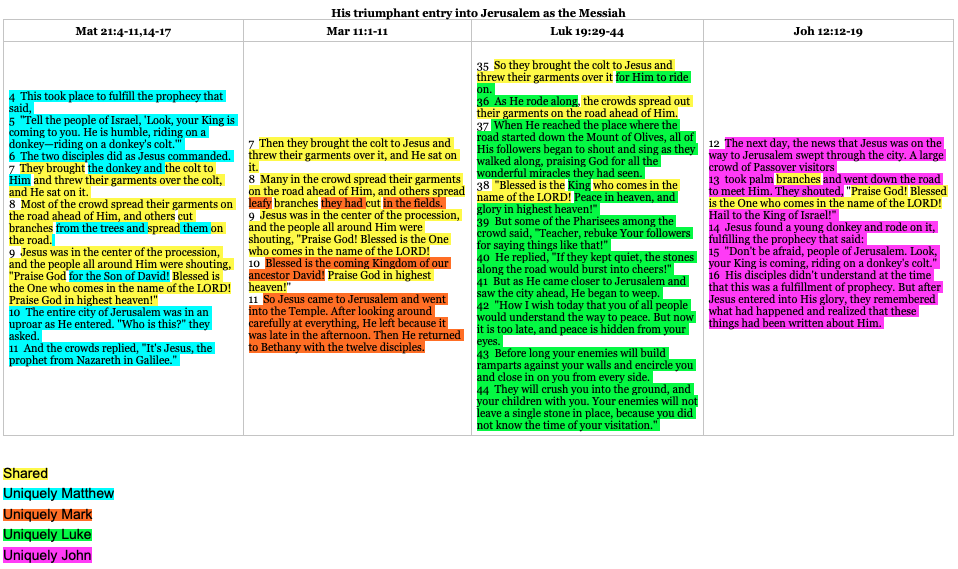What an amazing passage! Filled with highly significant statements. “If you, EVEN YOU, had only know on this day (the day of the Triumphal Entry) what would bring you peace – but now it is hidden from your eyes.” What an interesting statement! Then the extension to the thought which adds “[these things will happen to you] because you did not recognize the time of your visitation.”
- What is Luke saying?
- Where does he get this idea from?
- What does the statement “did not recognize the time of your visitation” mean in Luke 19:44?
Let’s use the various versions help us with the meaning:
- (AMP) the time of your visitation [that is, when God was visiting you, the time in which God showed Himself gracious toward you and offered you salvation through Christ].
- (BBE) because you did not see that it was your day of mercy.
- (CEV) because you did not see that God had come to save you.
- (EMTV) because you did not know the season of your visitation.”
- (GNB) because you did not recognize the time when God came to save you!”
- (ISV) because you didn’t recognize the time when God came to help you.”
- (KJV) because thou knewest not the time of thy visitation.
- (LITV) because you did not know the time of your visitation.
- (MSG) All th ( is because you didn’t recognize and welcome God’s personal visit.”
- (NASB) because you did not recognize the time of your visitation.”
- (NLT) because you did not accept your opportunity for salvation.”
- (YLT) because thou didst not know the time of thy inspection.’
Is that clearer now? I will leave the various alternatives found in these verses for you to think about. What is Luke pointing to here?
Note also the comment by the Pharisees for Jesus to rebuke His followers for saying these things.
- What things?
- Why would the stones cry out? Cry out about what?
- And why the second reference to stones?
- What is that about?
Remember I asked you why Luke doesn’t draw attention to the Zechariah prophecy as Matthew and John do. It would seem to fit Luke’s tendency to spell things out, if he had drawn attention to the Old Testament themes and linked Jesus’ Triumphal Entry to the prophecies from the Old Testament. But he appears to miss that out altogether. Why is that?
Allow me to draw your attention to Luke’s use of “King” in verse 38.
Why does Luke change the standard “Blessed is He who comes in the name of the LORD”, or “Blessed is the One coming in the name of the LORD” to “Blessed is the King who comes in the name of the Lord”? Why has he changed the standard statement? What is the point of this change?
Luke is staying something huge with all of this. Continuing story tomorrow as we investigate the source in the Old Testament and explain the answers to these questions.
But of course for the moment I have left it with you to grapple with.
It’s not who you are that holds you back, it’s who you think you’re not?
Rick Godwin
The Jewish OT combines history and prophecy as one. To God there’s no difference between prophecy and history. Think about it.
Ian Vail
People with hope can dance without music.
Ian Vail
A bird doesn’t sing because it has an answer, it sings because it has a song.
Anon

